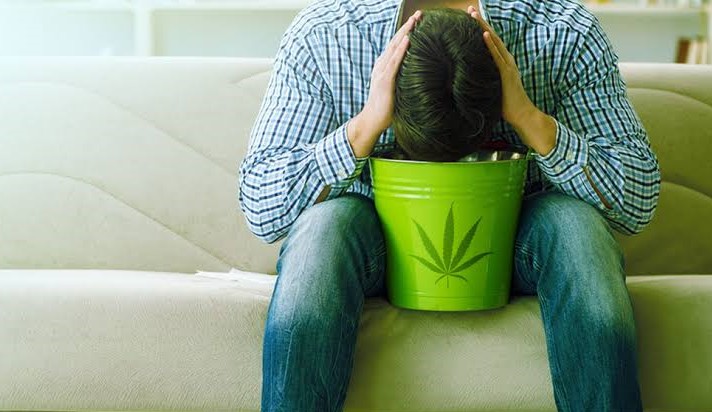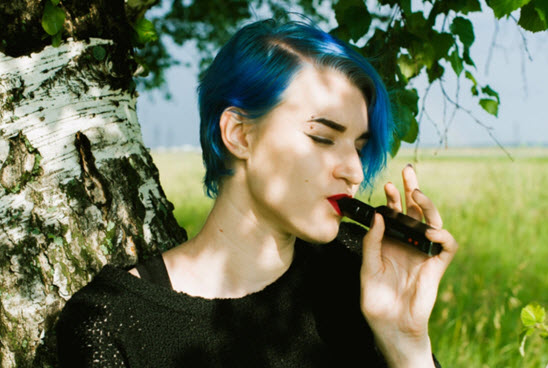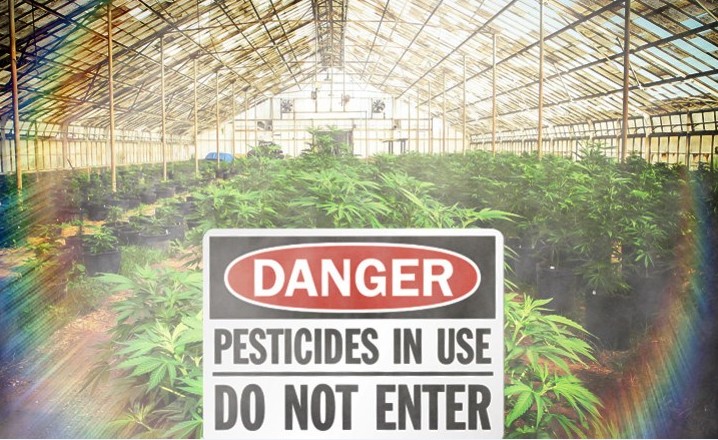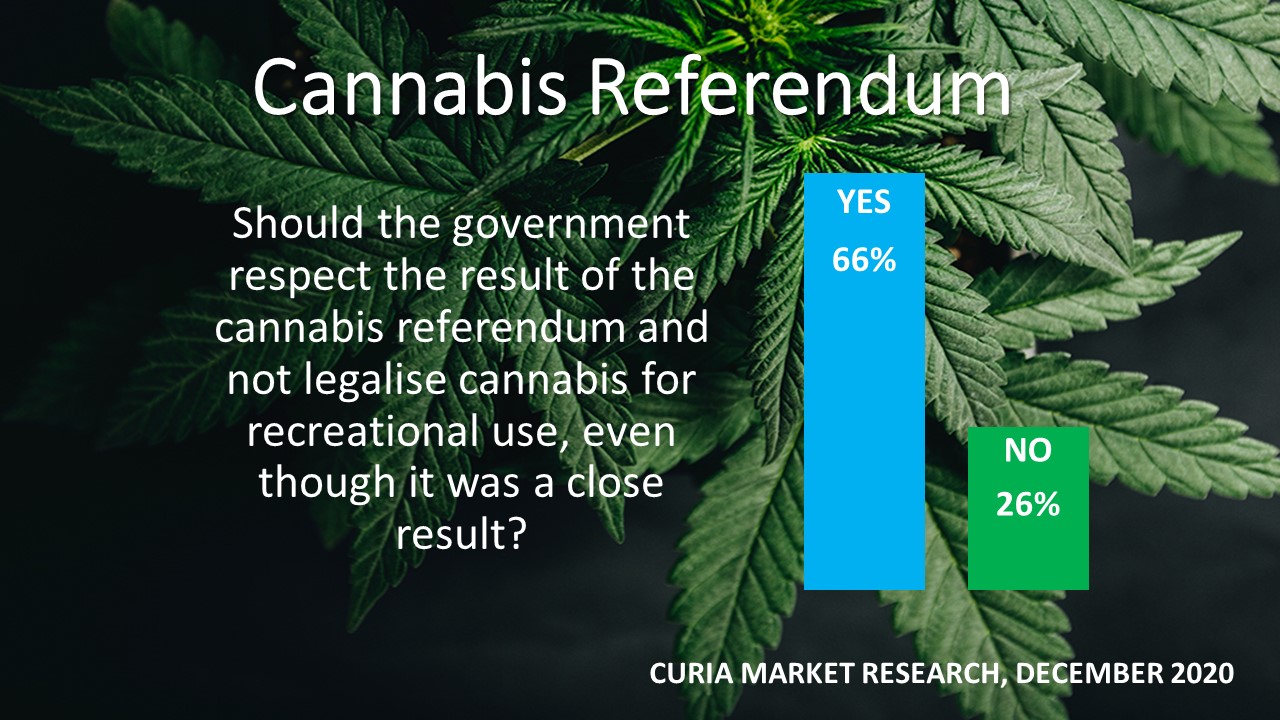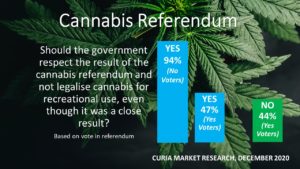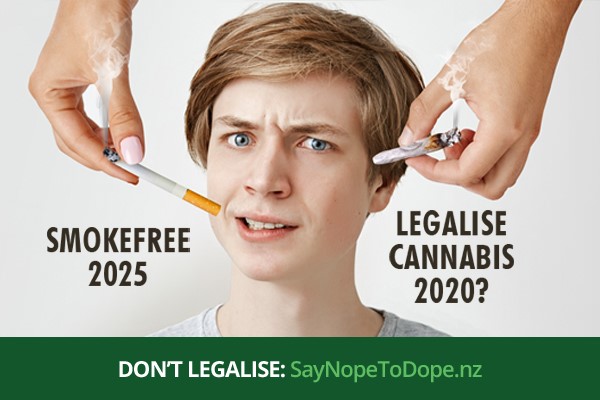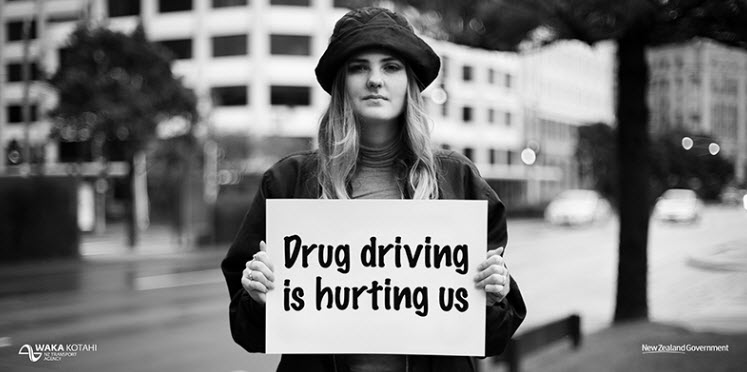
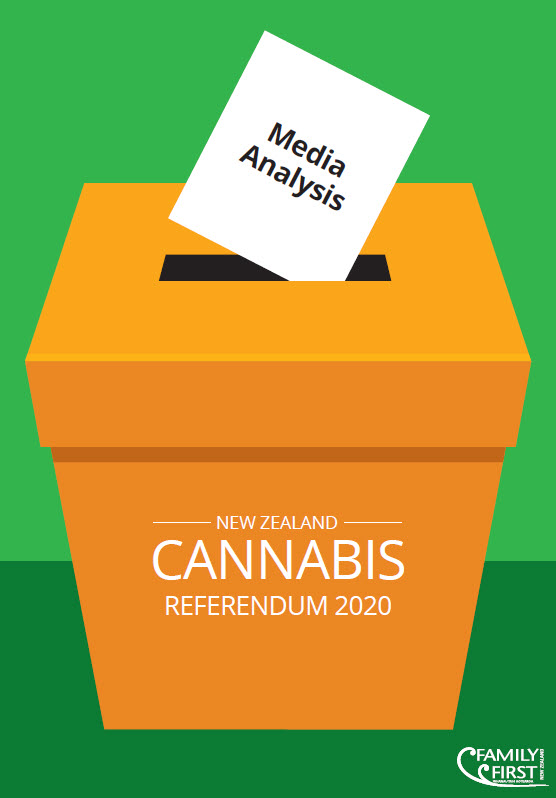 Family First commentary – 20 January 2021
Family First commentary – 20 January 2021
An in-depth analysis of media coverage of the euthanasia and cannabis referendums has found that while both sides of the euthanasia referendum were given reasonably fair and balanced coverage, the YES position in the cannabis debate received a heavily biased share of the media coverage during the campaign period – especially from some particular media outlets and journalists.
The analysis looked at more than 400 New Zealand-based media articles and opinion pieces as they appeared online during the cannabis and euthanasia referendum campaign period between May and October 2020. For the euthanasia referendum, there were 123 (75 news items and 48 opinion pieces) and for the cannabis referendum, there were 281 (203 news items and 78 opinion pieces) – more than double the coverage than was given to the euthanasia debate.
The objective of the analysis was to assess the extent to which the set of articles and op-eds, as a whole, provided balanced coverage of both sides of debate – consistent with the New Zealand Media Council’s first principle of “accuracy, fairness and balance.”
In the cannabis referendum analysis:
- More than a third (36%) of all headlines promoted the YES position, while only 18% promoted the NO position.
- Advocates promoting the YES position were quoted twice as often as NO advocates.
- More than half (126) of the 203 articles did not quote anybody from the NO side of the campaign, compared to only 64 articles not quoting someone from the YES side. While the NO position was mentioned in 44% of stories, it was typically deep in the story or a very small focus of the overall article.
- 51% of all Op-Eds were YES-biased while only 27% presented a NO position.
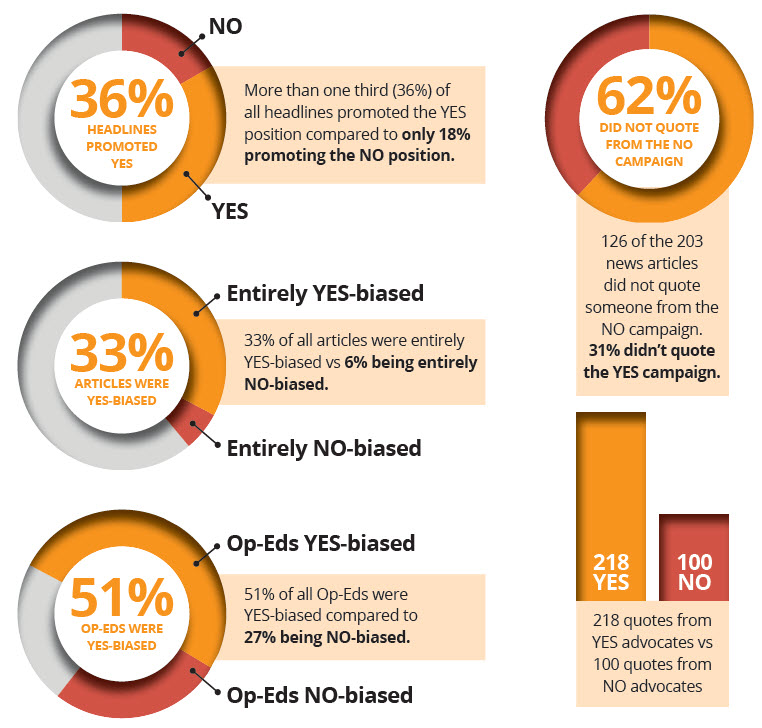
 In the euthanasia referendum analysis:
In the euthanasia referendum analysis:
- Across all 123 news and op-ed pieces on the Euthanasia Referendum, the coverage came out overall as balanced and reasonably representative of views on both sides.
- Opinion pieces were somewhat more likely to represent the NO-vote – whereas news items leaned a little more towards representing the YES-vote overall.
“As these reports clearly highlight, there can be no doubt that the YES position in the cannabis debate received a heavily biased share of the media coverage during the campaign period. The media also seemed far more concerned about the outcome of the cannabis debate than they were the euthanasia debate, with more than double the amount of coverage. A cynical observer might wonder whether that was because the outcome of the euthanasia debate appeared to be settled in the polling, whereas there was concern that the legalisation of cannabis wasn’t so certain,” says Bob McCoskrie, National Director of Family First NZ who commissioned the research.
“It is disappointing that a number of media outlets and journalists pushed one side of the cannabis debate so biasedly. The media should report the debate – not lead it. It also shows just how miraculous it was that the NO vote still succeeded.”
All the articles obtained were based on the list provided by NZ Politics Daily, a comprehensive, nonpartisan list of articles, columns, and analysis relating to New Zealand politics and government, produced by the Democracy Project at Victoria University Wellington. This list was used to maintain the neutrality of the analysis and to avoid any accusation of searching for articles that leaned to one side or the other of the debate.
The analysis has been audited by an Emeritus Professor who specialises in research methods and statistics.
READ: CANNABIS MEDIA ANALYSIS



